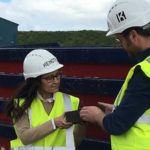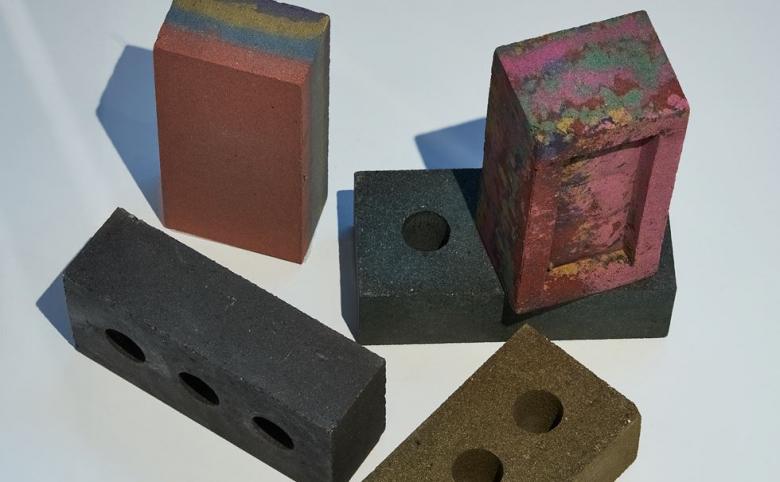About the project
With the construction industry one of the leading contributors of CO2, a new product from start-up Kenoteq is changing the game. The K-Briq, made almost entirely of recycled building material, is leading the move to cleaner and more efficient building solutions.
Designed and developed by Professor Gabriela Medero and Dr Samuel Chapman of Edinburgh’s Heriot-Watt University over a period of years, the K-Briq went through a series of rigorous experiments and tests, and the result is a brick made from 90% recycled building material, that produces less than a tenth of the carbon emissions in its manufacture than a traditional brick.
The process for producing a K-Briq begins with demolition or construction waste. This can include high quality, recycled sands and gravels, gypsum from waste plasterboard, and recycled pigments. Once collected and sorted, the materials go through a series of compression and mixing processes. The recipe and process are patented in the UK and US. Unlike traditional bricks, there is no need to fire the K-Briq. This drastically reduces the amount of carbon released during production, and the time taken to produce the bricks. Within 24 hours of receiving waste materials, the K-Briq is ready to use.
Other than the obvious benefits with regards to time and environmental impact, the K-Briq also offers better insulation properties than normal bricks, keeping buildings warm in winter and cool in summer, and helping to keep energy use and heating costs down. The unique production process also allows K-Briqs to be produced in any colour, using recycled pigments in the mix.
Because of the materials used in the production of K-Briqs, they can be made anywhere, ending the need for transportation of material from further afield. And with recycling at the heart of Kenoteq, the business is leading the way in the adoption of a circular economy.

